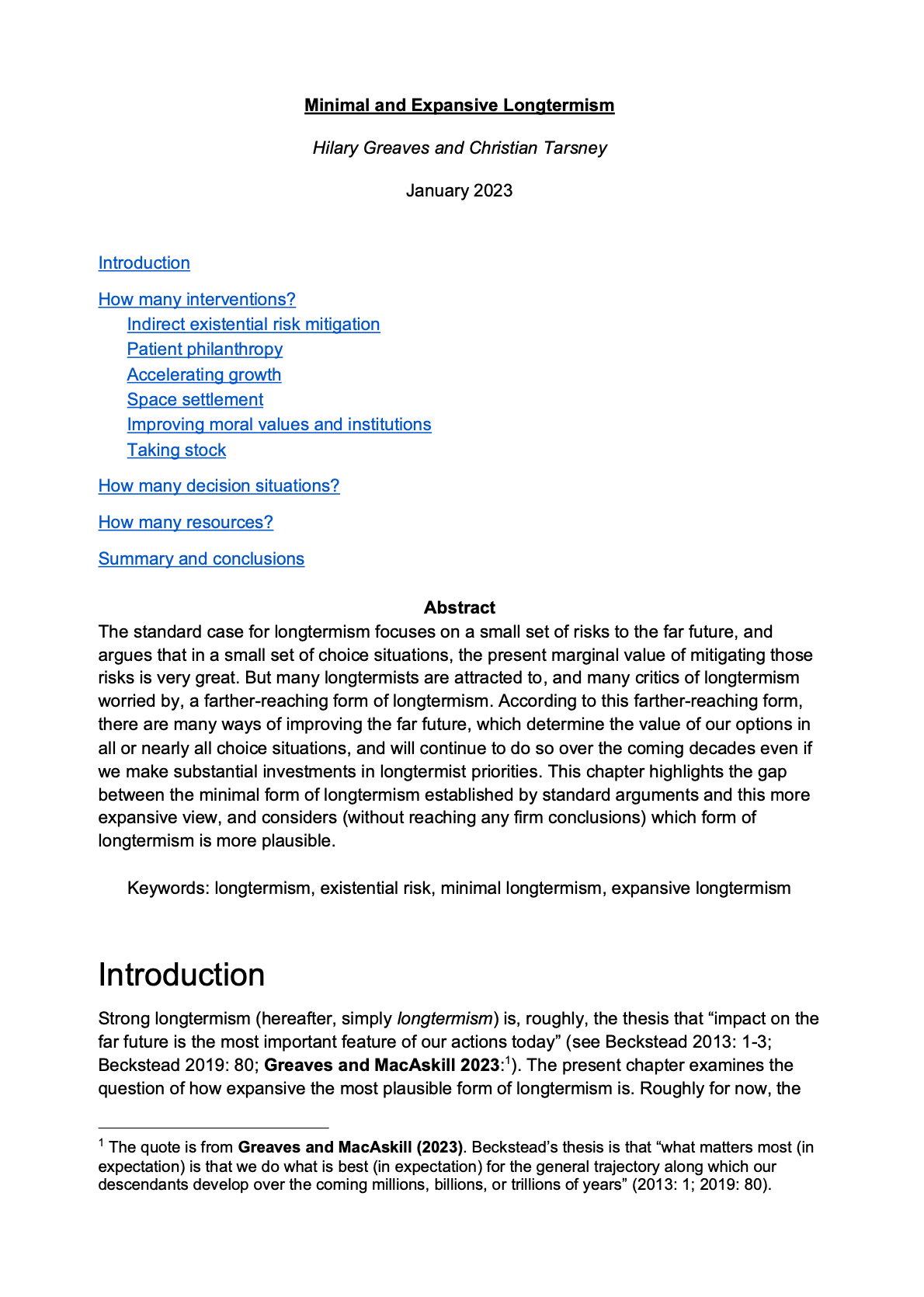Minimal and Expansive Longtermism
Hilary Greaves (University of Oxford) and Christian Tarsney (Population Wellbeing Initiative, University of Texas at Austin)
GPI Working Paper No. 3-2023, forthcoming in Essays on Longtermism
The standard case for longtermism focuses on a small set of risks to the far future, and argues that in a small set of choice situations, the present marginal value of mitigating those risks is very great. But many longtermists are attracted to, and many critics of longtermism worried by, a farther-reaching form of longtermism. According to this farther-reaching form, there are many ways of improving the far future, which determine the value of our options in all or nearly all choice situations, and will continue to do so over the coming decades even if we make substantial investments in longtermist priorities. This chapter highlights the gap between the minimal form of longtermism established by standard arguments and this more expansive view, and considers (without reaching any firm conclusions) which form of longtermism is more plausible.
Other working papers
The end of economic growth? Unintended consequences of a declining population – Charles I. Jones (Stanford University)
In many models, economic growth is driven by people discovering new ideas. These models typically assume either a constant or growing population. However, in high income countries today, fertility is already below its replacement rate: women are having fewer than two children on average. It is a distinct possibility — highlighted in the recent book, Empty Planet — that global population will decline rather than stabilize in the long run. …
How to resist the Fading Qualia Argument – Andreas Mogensen (Global Priorities Institute, University of Oxford)
The Fading Qualia Argument is perhaps the strongest argument supporting the view that in order for a system to be conscious, it does not need to be made of anything in particular, so long as its internal parts have the right causal relations to each other and to the system’s inputs and outputs. I show how the argument can be resisted given two key assumptions: that consciousness is associated with vagueness at its boundaries and that conscious neural activity has a particular kind of holistic structure. …
Shutdownable Agents through POST-Agency – Elliott Thornley (Global Priorities Institute, University of Oxford)
Many fear that future artificial agents will resist shutdown. I present an idea – the POST-Agents Proposal – for ensuring that doesn’t happen. I propose that we train agents to satisfy Preferences Only Between Same-Length Trajectories (POST). I then prove that POST – together with other conditions – implies Neutrality+: the agent maximizes expected utility, ignoring the probability distribution over trajectory-lengths. I argue that Neutrality+ keeps agents shutdownable and allows them to be useful.

